|
I love the maple tree in our backyard this time of year. The bright red flowers against the grey speckled bark is very striking. The rain only accents the effect. If you look closely, there is a little sparrow hiding in the branches. I love the rain that is turning everything green again. Daffodils are blooming and lots of the fruit bushes have started to leaf out. We are starting to fill up the greenhouses. The rain barrels are hooked back up and are full. We planted onions this week, and the peas we planted earlier are coming up. It is a hopeful time of year. It is also an anxious time of year for us. We watch to make sure the seeds we planted inside are coming up. We watch to make sure they get just the right amount of water. We watch the weather very closely to see whether or not we will need to run the greenhouse heaters overnight. Last night I had a hard time sleeping because the sound of the greenhouse covers flapping in the strong winds is a little alarming. I had to check on them several times. Steven and Robert had weighted down the doors inside and out with extra bags of mulch. The greenhouses are all secured with t-posts in each corner and weighted on the outside with 2 x 10 boards and cinder blocks to keep the wind from catching the greenhouse covers and blowing them away. The seedlings we started a few weeks ago need to go into the greenhouses with the extra light and heat, but I always worry every year that the heaters will go out or that the wind will catch the greenhouse covers, and we will lose plants. So we watch and pray, and pay close attention. Our goal is to be able to sleep when the wind blows. How to Sleep When the Wind BlowsI've heard this story many times before, but Shayne M. Bowen shared this story a few years ago at BYU and it really stuck with me. Many years ago the old country fair in parts of England was, besides being the place of exhibition for farm products, [the place] where employer and employee met. . . . Farmer Smith wanted a boy to work on his farm. He was doing some interviewing of candidates. A thoughtful looking lad of about sixteen attracted him. The boy was confronted with a rather abrupt question from the gruff old agriculturist. “What can you do?” The boy swung back at him in the same style, “I can sleep when the wind blows.” . . . Notwithstanding he didn’t particularly like the answer to a civil question he got from the teenager, there was something about the gray eyes of that fellow that got under his skin. He approached the lad again with the same question, “What did you say you could do?” Again the same answer bounced back at him, “I can sleep when the wind blows.” Mr. Smith was still disgusted with such an answer and went to other parts of the fair to look into the faces of other youngsters who might want a job on a farm, but there was something about that answer he got that stuck to him like glue. First thing he knew his feet were carrying him back to meet the steady gaze of those deliberate eyes of the boy with such strange language. “What did you say you could do?” for the third time he thundered at the farm help. For the third time, too, the farmer got the same answer. . . . “I can sleep when the wind blows.” “Get into the wagon—we’ll try you out.” . . . One night Farmer Smith was waked about 2:00 a.m. with what might be a cyclone. It seemed that gusts from the north in only a few minutes developed with intensity to threaten the roof over his head. The trees cracked and noises outside turned the nervous system of our friend upside down. The speed he used to jump into his trousers was only outdone by the lightning as it broke up the darkness outside. With shoes half-laced he rushed out into the farmyard to see if anything on the premises was still intact, but he would need the services on a wicked night like this of that new boy. He called up the stairs of the attic where the latter slept, but the response was the healthy lung heaving of a healthy lad. He went half the way up the stairs and thundered again, but only a snore echoed back. In excitement he went to the boy’s bed and did everything but tear the bed clothes from the youth, but the lad slept on. With a mixture of desperation and disgust he faced the gale, and out into the farmyard he plunged. He first approached the cow barn. Lo and behold, the milk producers were peacefully chewing their cuds, and the inside of their abode was as snug as a mouse under a haystack. It didn’t take him long to discover how the boy had chinked up the cracks of the cow abode and reestablished the locks and hinges. In the pigpen he found the same tranquility, notwithstanding the forces at work that night. He turned to the haystack. As he felt about in the darkness, it didn’t take him very long to determine again the preparation of the lad with the gray, steady eyes. Every few feet on that feed stack wires had been thrown and weighted on each side. With this construction the alfalfa was peacefully under control and laughing at the elements. Our farmer friend was stunned with what revelations he had in a few minutes of that cyclone night. He dropped his head. His mental maneuvers shot like lightning to the boy snoring in the attic. Again, the peculiar answer of a few weeks ago slapped him in the face: “I can sleep when the wind blows.” (see Thomas Whittaker, “How to Sleep on a Windy Night,” chapter 21 in Brighter England and the Way to It (London: Hodder and Stoughton, 1891), 259–61.) This young man could rest because he knew what had to be done to prepare, and he had done it. He had got the work done before it was windy and dark. I have a personal witness that it is much easier to do things this way. Some emergencies cannot be avoided, but I have found that we have lots fewer emergencies when we think ahead.
I was reading this week that baby chicks were selling out at about the same rate as toilet paper was earlier. I have tried to do some online grocery shopping without great results. We added stuff to our online cart, then went to check out. Everytime we attempted, something else dropped out of the cart. I ended up buying less than half of the groceries I had originally put in my cart. I read about concerns that migrant workers will not be able to get to their jobs in agriculture this spring with all of the restrictions. Big deal you say. Anyone can farm you say. Twenty years of experience is hard to replicate on the spot I say, and it does not take much to disrupt our just in time system. Keeping the transportation system up and running is a concern for agriculture and manufacturing. The baby chicks selling fast and the seed companies scrambling to keep ahead of record orders tell me that more than a few people are thinking they would like to supply some of their own food this coming year. We have seen record orders on our Spring Plant Sale too. We have planted and replanted trying to stay ahead of requests and make sure that everyone gets what they need for their gardens this year. I can't tell you how many people we have talked to in the last few week who are expanding their garden, or gardening for the first time this year because they are worried about their jobs or their ability to buy food. It is a reasonable concern. Planning ahead and planting a garden seems like a very good idea to me. We will also be planting and planning how to preserve as much of the harvest as we can this year. Having a garden is a hedge against the effects of inflation on my grocery money. It is a feeling of security in a crazy world. It is therapy in a time of stress. It is something productive to do so we don't just sit and worry about the things I can't control. Here are some good links for gardening resources for you to use this year as you garden! If you want to really grow food, this is the best system I have seen. Our main garden beds use this method. It really produces. Everything you need to know to grow a great garden here: https://growfood.com/wp-content/uploads/2018/12/Mittleider_Soil_Bed_Gardening_v5_download.pdf The state extension offices in your state are a great resource. Here is a link to the Iowa State University Extension offices planting guide. If you are wondering when is the right time to plant, this is a great resource. https://store.extension.iastate.edu/product/3960 When you have prepared ahead and planned for things that could happen, then even if it storms you can sleep when the wind blows. Have a great week! This week I read headlines and articles about the economic turmoil, the spreading virus, concerns about lost school time, lost jobs, and earthquakes happening in various places. I read about the plight of those who are homeless, refugees, migrant workers who can’t migrate to their agricultural jobs, and nations losing their crops to outbreaks of locusts. Many articles used the word “unprecedented” to try to give a sense of scale to the issues that surround us. Whole nations and great cities are sheltering in place. Hospitals running short on supplies are feeling overwhelmed. It can really upset your stomach to try to digest that much bad news. I struggle with some anxiety and depression even in the good times, but I find that I can’t just turn off the news and pretend everything is normal either. Even if I turned off the news, I still have everyone home all week long. School has been cancelled for the next few weeks or longer. Steven is working from home. All the social and fun stuff has been cancelled. No birthday parties, outings, appointments, or activities. Believe it or not, dentist visits that had to be postponed were part of the fun list. My kids had tears over cancelled dentist appointments :) We will just do the best we can. Steven and I are now responsible for helping my family cope with their new normal. If we are scared, anxious, or upset, they will pick up on that. A few years ago, Russell M. Nelson gave a great talk about finding joy in hard times. He said: “The joy we feel has little to do with the circumstances of our lives and everything to do with the focus of our lives…. Joy comes from and because of [Jesus Christ]. He is the source of all joy.” He said that we could find joy regardless of what is or isn’t happening in our lives. It’s true, but how do we do it? This verse from the Hymn “Count your Blessings” explains one way: When upon life’s billows you are tempest-tossed, When you are discouraged, thinking all is lost, Count your many blessings; name them one by one, And it will surprise you what the Lord has done. Counting your blessings is a good way to focus on the things that are going well. It helps us feel grateful. I decided to count my blessings this week. Here are just ten! 1. I can still get up early, but the pressure to be somewhere on time is gone. I don’t have to hustle to make sack lunches or find lost things. I don’t have to worry that someone will have to choose between eating breakfast or catching the bus. We get to eat better breakfasts now that there is more time in the morning. 2. Steven is working from home. He has a job that can be done remotely and fortunately, he does this often enough already that we have a home office for him to use. He gets a lot done at work, and since he is not driving anywhere, we are saving on gas money and he gets to spend more time with us. We get to eat all our meals together, and he is really good at keeping the laundry going, which is a big help. 3. Robert is still serving his service mission. He serves at a food bank a couple times a week right now. This week he helped put together care packages for people losing their jobs. Some of his assignments have been cancelled, but I’m not sad because he is a great help at home too. We really needed his height and muscles on several jobs this week. 4. School is cancelled!!! I know that lots of you are working on online options for keeping the kids busy and learning. I don’t feel that kind of pressure. I’m really grateful for the break. I’m glad we will have them to help on the backyard farm. I’m sure we will keep learning, but it has been wonderful to just be at home with the family. I talked to my mom who was a school teacher about this. She wasn’t worried. We'll keep reading, and we’ll work math into everyday life like cooking. We’ll keep learning, but I’m not feeling pressure to recreate a whole curriculum overnight. It’s going to be fine. 5. Technology is amazing! Steven can do his job from home. We can shop online. We have been able to call family, stay connected with people on Facebook, and Rachel did her voice lesson over the phone. We bought a movie that came out early to watch yesterday. We can do online games with friends. We can listen to concerts and find helps and fun things to do. It is fun to see people become more creative in how they connect even though we are physically staying apart. Technology is even helping our plant sales. While we really enjoy the face to face interaction with fellow gardeners and we have historically only taken cash or check for payment, technology will allow us to accept cards or other money transfers making it possible for people to pick up their plants without interaction if needed. 6. We have a garden! It is much easier to think of something for the kids to do when I actually have something meaningful that needs to be done! They can tell if I am just making up chores. Right now, they are busy hauling strawberries out to the greenhouses. Exercise, sunshine, and contributing to the food they will eat this next summer and fall. Win. Win. Win. 7. We ordered seeds early. With all the unprecedented news, seeds are selling faster than normal. Several places we order from have shut down to catch up, and I suspect some things will sell out faster this year than normal. I’m glad we already have what we needed on hand. Steven has noticed a huge increase in new gardeners jumping on social media asking for help. While it is exciting to see the interest from so many new gardeners, Steven works for a seed company and knows that seed companies can’t change their supply this late in the season as most of the seeds being sold now were grown last summer. 8. We already practiced not shopping. With our recent 100-day limited budget challenge, and last year’s 50-day no shopping challenge, we have some experience in making do with what we have. We can make all the bread, tortillas, muffins, cookies, etc that we want to eat, and since we mostly eat plant based, we know how to make all those things without eggs and milk, and we already like and are used to rice and beans. As a side note, we have eaten a lot of dry beans over the years and our bodies have built up the microbes needed to properly digest them. When people started to panic buy, the first empty shelves we found besides toilet paper and bottled water were the dried bean shelves. Normally I have to pick through the dried bean shelves to make sure I’m not buying bags that are past their best by date suggesting dried beans are not very fast movers in the grocery stores. I am VERY grateful I’m not stuck at home with 7 others whose digestive tracts are not used to eating beans! 9. We still have lots of food from last summer in the freezer and pantry. We pulled out pesto this week to make pesto pizzas. Nothing tastes like summer more than fresh green pesto. We still have freezer strawberry jam too. The chives are already greening up and the peas we planted are starting to sprout. 10. It’s spring! Of all the times that we could have chosen to have this much drama in the world, this is the best time. We are headed into warm and sunny weather, if stores are short on fresh things, we have the whole summer of garden produce ahead of us. It is much easier to control cabin fever, when you can spend a little time outdoors. I even love the rain that makes splashy puddles everywhere. We can open our windows and get fresh air and I’m thinking about putting away the snow gear. Your list might look different than mine, but counting your blessings really does help! The interesting thing about counting your blessings is that if you write them down you will find that the same things end up on both your blessings list and your challenges list. Do I put my kids being home on the blessing or challenge side? Yes. Is the garden a blessing or a lot of work? Yes. It depends which side you focus on!
It also helps to remember to smile! Hugh B. Brown (1883–1975), recognized the value of facing challenges with humor: “A wholesome sense of humor will be a safety valve that will enable you to apply the lighter touch to heavy problems and to learn some lessons in problem solving that ‘sweat and tears’ often fail to dissolve.” We are taking time to smile at home too. When someone in my house tried to make mint chocolate chip ice cream out of bananas, spinach, peppermint extract and chocolate chips, we chose to see the funny side when it turned out exactly like you are imagining it did (it was horrible!). When amid all of the cancellations and adjustments that we have made to our schedule someone had tears over not being able to go to the dentist, we smiled too. We took another tearful moment and turned it into a fun activity and a video that made us and others smile. This won't last forever. In the middle of all the turmoil and strife we will find happy moments and things to be grateful for. We will continue to counting our blessings, and look forward for good things to come! What a week, and not just because it was 60 degrees yesterday and then snowing this morning! All of our plans have been scrambled as the Covid-19 was declared a global pandemic. The stock market crashed and rebounded sort of. Whole countries are locked down. Sports seasons were cancelled and schools were closed. Universities plan to finish their semesters online. Our church announced that they were suspending church meetings and activities worldwide. Anxiety has gone up as people wonder what will happen and who they need to worry about. Groceries are flying off the shelves. Next week the kids are home for spring break and Steven's job has asked everyone who can to work remotely until the end of March. With all this excitement, we decided to end our 100-day limited spending budget challenge this week and I did my regular shopping plus some extra to refill our reservoir of items that were getting close to running out. Like I said two weeks ago, you don't drain a reservoir in a drought just to see what the bottom looks like. It's much easier and a lot less stressful to just keep a constant level in the reservoir than it is to drain and refill it dramatically. We should have planned to end our challenge this week even without all the panic. It's good timing to end as we change from winter to spring over spring break. We saved enough to pay for some summer activities and fancy dresses for events the girls hope won't be cancelled. We're in a good habit of eating out of the pantry too. It's a good thing we still have a full freezer, because it looks like we will be doing another eating at home challenge for the next while. If you are wondering what kinds of things were getting low in our reservoir, we bought a lot of apple juice for our green smoothies, frozen orange juice, frozen fruit and veggies, potatoes, a bunch of citrus fruit, carrots, and tortilla chips because we missed those. We bought laundry soap and personal hygiene products like shampoo and toothbrushes cleaning supplies. I filled back in the spice cupboard and bought brown sugar because we love to bake. We wouldn't have run out of anything if we had completed all 100 days of the challenge, but didn't want to risk running out and being sick or quarantined at the end of the challenge. It was really nice to be able to buy a few treats like tomatillo avocado salsa and hummus again. I also splurged and bought a bunch of Easter candy too, just in case it decides to flee the stores with the bottled water, toilet paper, and dried beans. Now we are switching gears to focus on the garden. I have planted thousands of seeds and lots of strawberries for our garden and the spring plant sale. This year more than ever I am inspired to grow a great garden. Unlike grocery stores, the food in my garden doesn't tend to have a run on supplies. Well, we did have a racoon family that had a tomato tasting party in the garden last year, but I digress. Usually, if we plant it I can count on some good yields. We grew enough food in the garden last year to save us about $3000 off our regular budget. That is like 2.5 months of pretty much free food, or another way of looking at it is that the garden gives my monthly budget a $250 boost. That is a huge help and a great investment! It's also a good way to get kids outdoors and doing something. I'm really grateful we have so many spring projects to work on since we will have so much time at home. Friday we took the day to clean up the flower gardens and orchard. The girls cut down all the spent flower stems and made big piles that Robert ran through the shredder. I'm sad the voles girdled so many of our fruit trees, but Katie and Robert sure had lots of fun cutting the dead trees down. A lumberjack contest kept things interesting. Steven and Robert ran the shredder until sunset making fresh mulch for the beds. I picked up bits of trash that had blown in over the winter and found a pile of garlic that I had pulled up last year now sprouting. I picked the best pieces and planted them back into the garden beds so we can harvest even more this fall. Sunshine and fresh air combined with dirt and good hard work is a good recipe for a great day. I got a little sunburned, it's been months since I've spent that much time in the garden. The seasons change with or without us Thomas S. Monson said:
"We live in turbulent times. Often the future is unknown; therefore it behooves us to prepare for uncertainties. When the time for decision arrives, the time for preparation is past." When I started to write today I wondered what to write. I could tell you that toilet paper and beans are in short supply and their are long lines everywhere, but it's not very helpful, since those moments of preparation are past. The stores will stock back up eventually, but by then life will be on to the next thing. The events of our lives roll in and out just like the seasons. Some things will be easy to plan for, others will catch us by surprise. In some ways this coming year feels like a great adventure. Everything will be great if we are ready for it, but dangerous if we are not. Roald Admundson the Norwegian polar explorer had great success in his adventures part because he prepared for potential problems and obstacles in advance. He said it this way: "I may say that this is the greatest factor: the way in which the expedition is equipped, the way in which every difficulty is foreseen, and precautions taken for meeting or avoiding it. Victory awaits him who has everything in order, luck, people call it. Defeat is certain for him who has neglected to take the necessary precautions in time, this is called bad luck." Halfway to the south pole would be a really bad time to run out of supplies. I don't think they have a Costco there. Even if they did, I'm sure the prices would be much higher than you could get if you had planned ahead and didn't need something in an emergency. Last minute flights, after hours urgent care, and same day delivery all cost an arm and a leg. Sometimes literally. Planning ahead is infinitely preferred. So what is the next part of our adventure that needs to be planned? As we look ahead to this summer there are lots of uncertainties. "Will our activities be postponed or cancelled?" "What happens if...(fill in the blank trauma of choice)? What can I do? Well, I know for the next little bit I have a whole lot of help at home so we will be utilizing all that spare teenage muscle and skill to work on the garden. This week we will set up the greenhouses, build an in-the-garden greenhouse, trellis the blackberries and pull up the rest of the damaged fruit trees. I'll plant more seeds and clean up more garden beds. The kids can help clean out and organize the garage and a dozen other projects. We'll organize the house, do some online shopping for winter and fall things that are going out of season now, so we won't have to worry about finding them next fall. We're working on a schedule so we can be productive with our time and trying to keep it fun. Speaking of planning ahead, we remembered at dinner that it's Pi day. I remembered this morning when I decided to wear my Pi day t-shirt, but forgot about it soon after. Mental note that planning goes better with a written list :) Anyway, one of the kids remembered a razzleberry pie that got missed in the freezer, and cooked it up. Sadly, by the time it was finished baking it was too late to eat it, so we will eat it tomorrow. Yes, that was a tough sell to send them to bed without pie. Not planning ahead is trouble. However, being flexible to plans changing is also a great skill. I solved the dilemma by promising they could eat it for breakfast instead. Probably with whipped cream. We eat oatmeal a lot. I'm sure it will balance out. Planning ahead would have saved me serious parental bonus points here. It's a skill that needs more polishing apparently. I should write that down. By planning ahead for the garden now we will have strawberries for sky high strawberry pies and jam, fresh green peas and bunching onions and lots of greens in just a few months. The rhubarb is already growing again so it's time to use up what we have left in the freezer. We'll make freezer jam with the strawberries and package the new rhubarb for fruit leather, cakes and pies. We're already looking ahead a year in lots of ways. We'll be filling up the reservoirs because it looks like the weather is unsettled. We'll be preserving part of all the harvests, and drop by drop we'll fill back up the reservoirs. Then whatever happens, we will have eaten well all summer, worked hard in the sun, and spent good time together as a family, a with any luck (dedicated planning and preparation) we will gave a great harvest too. |
Archives
April 2022
Categories
All
|
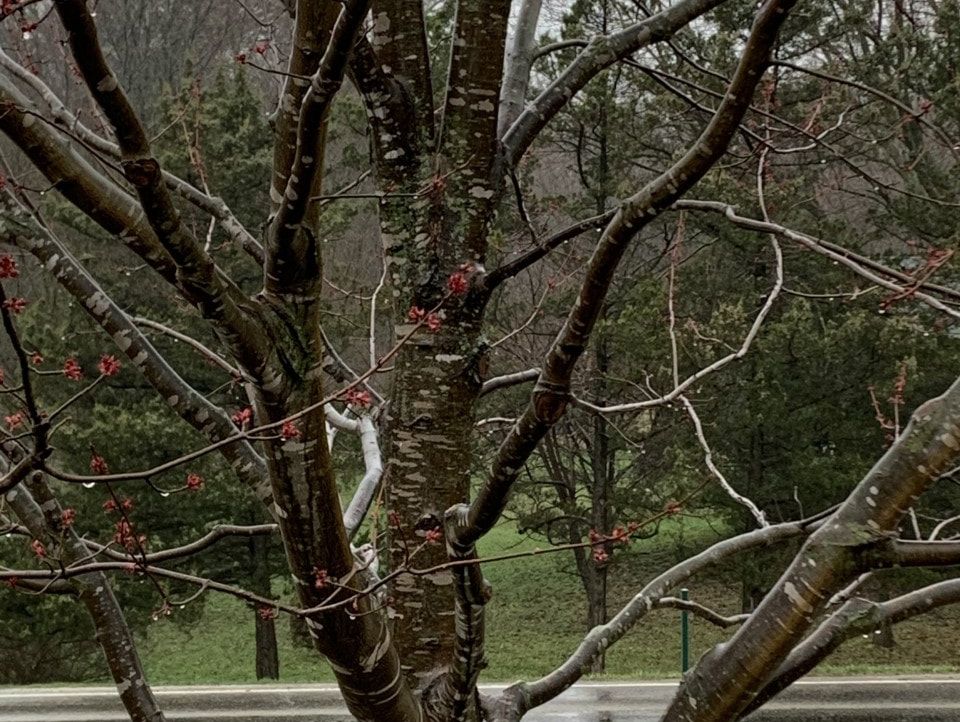
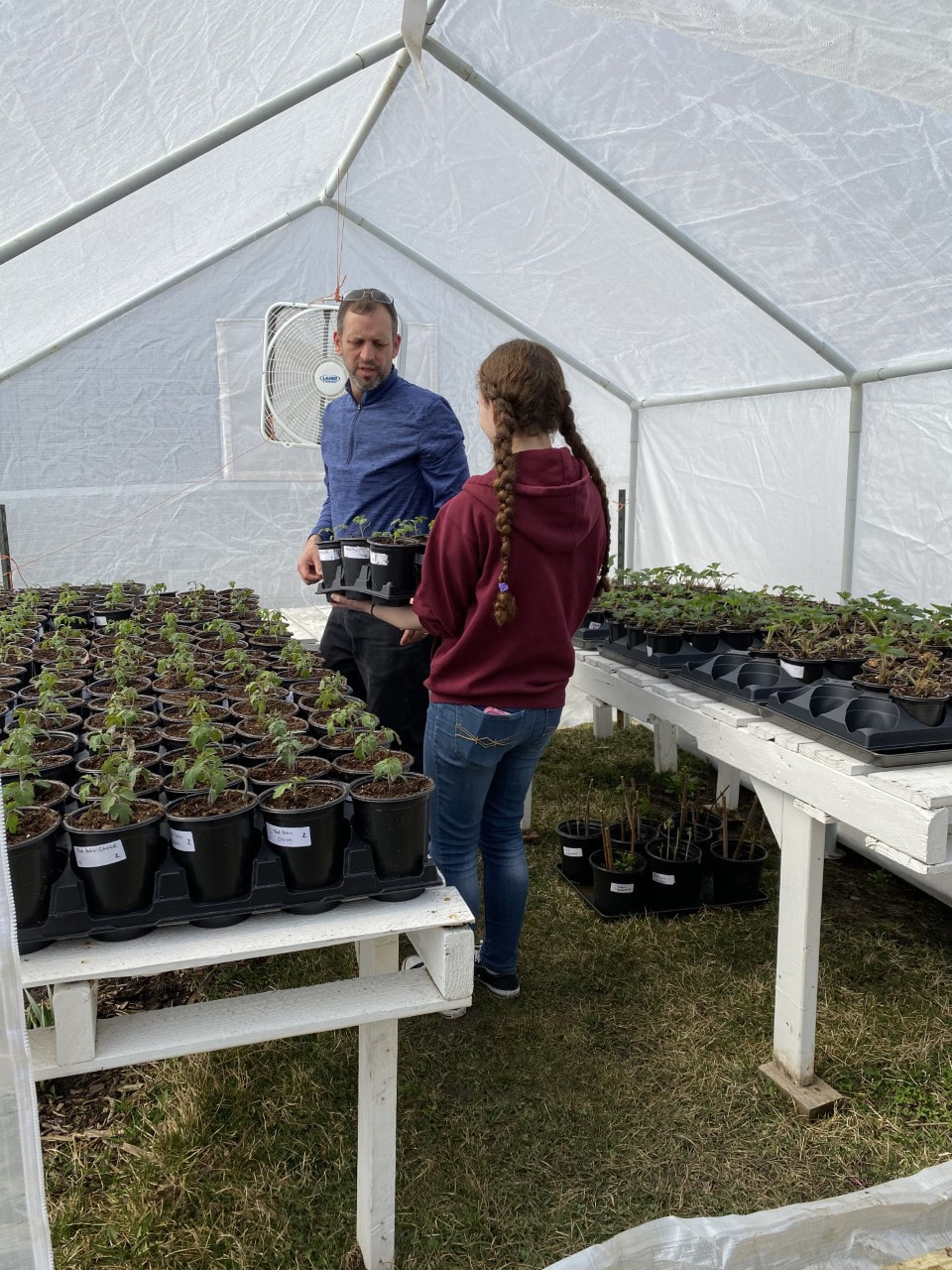
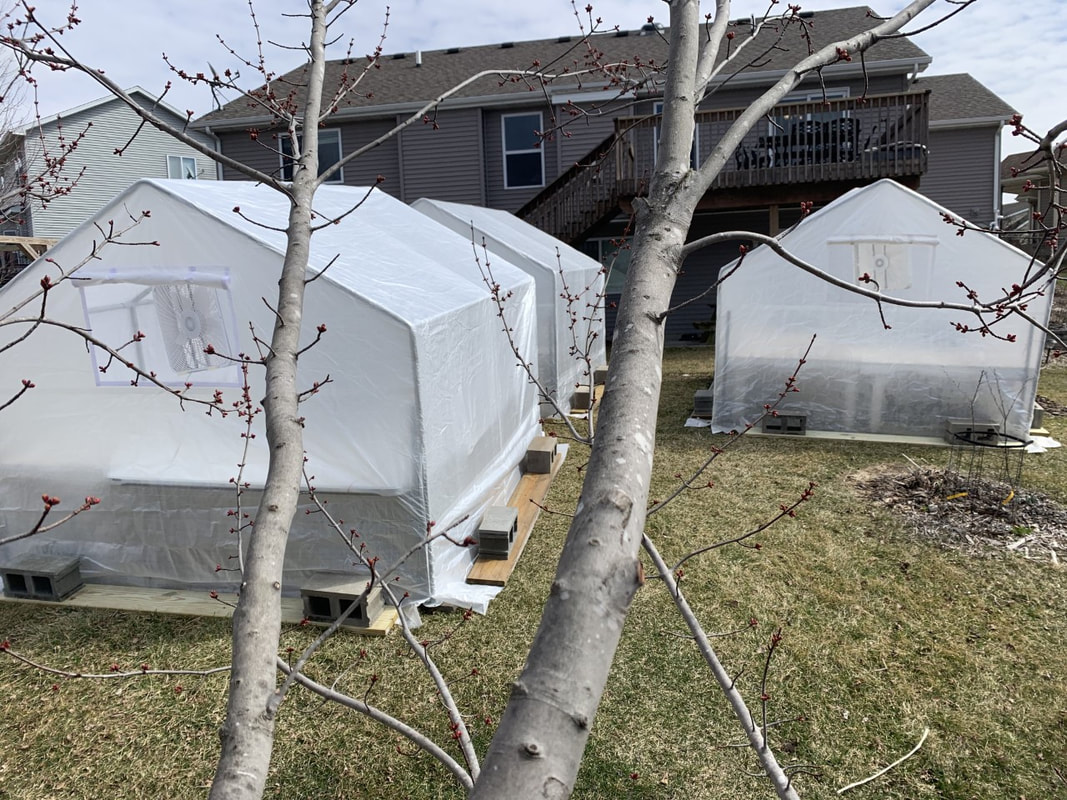
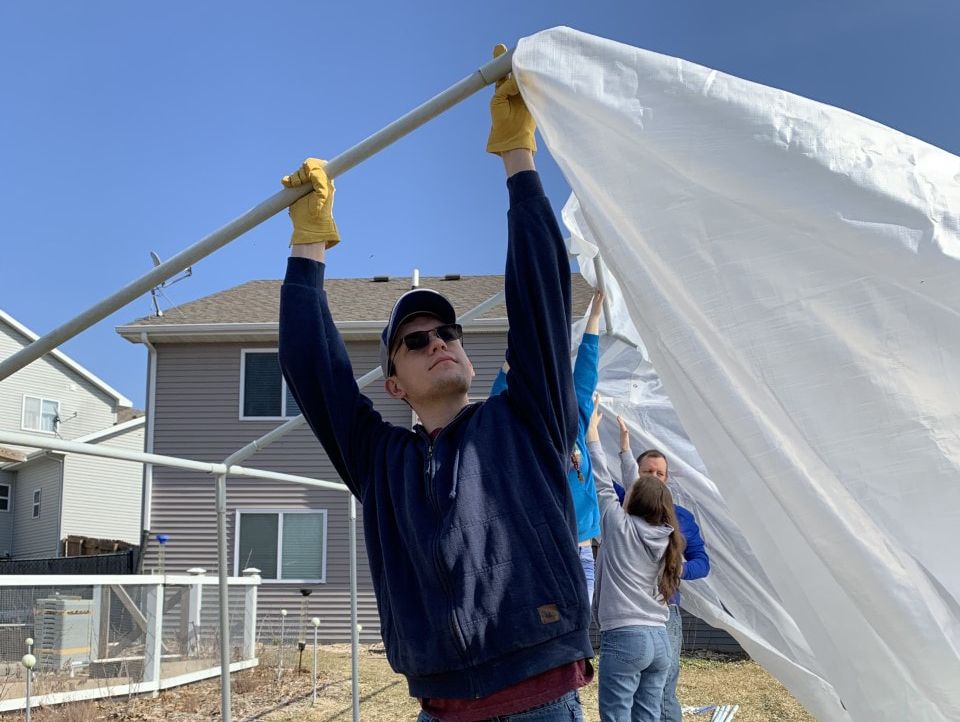
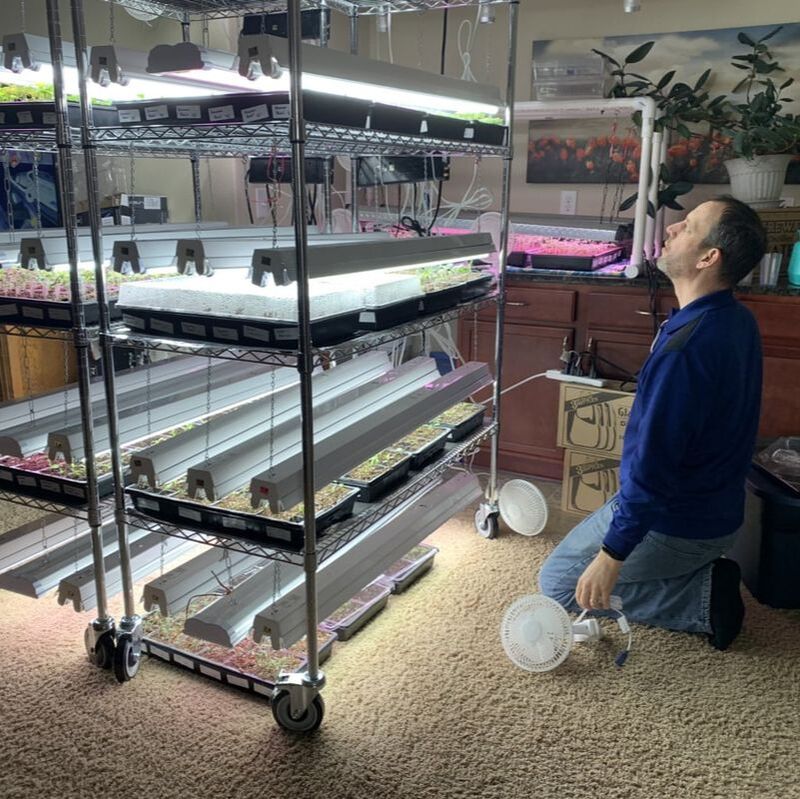
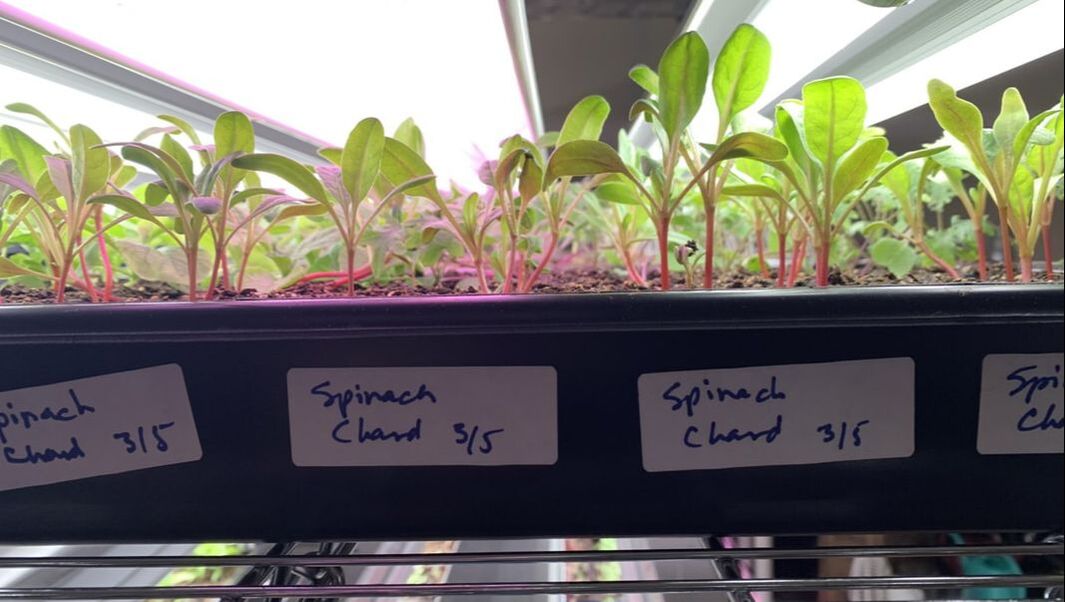
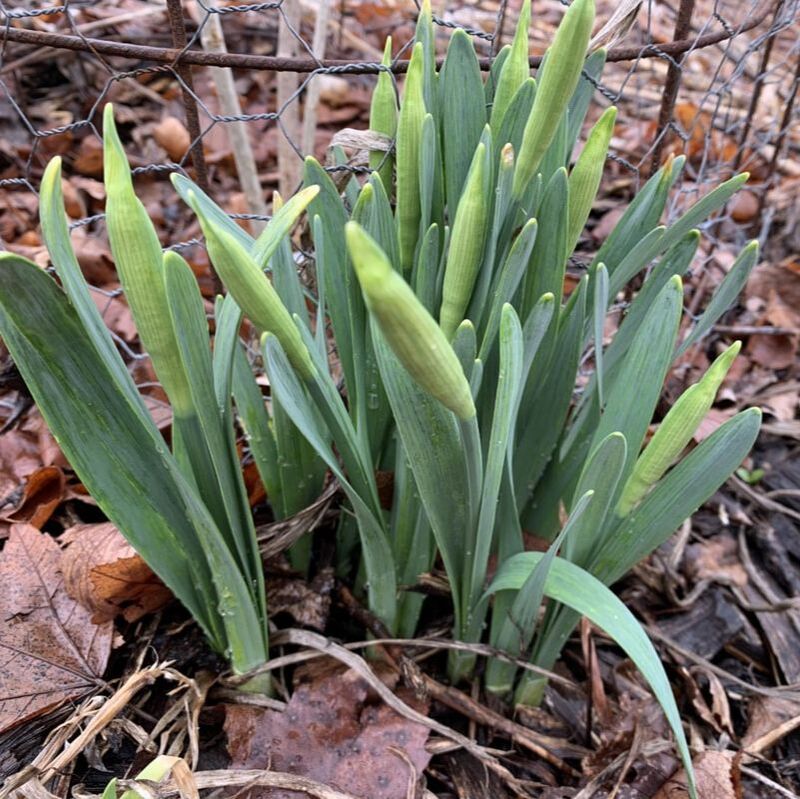
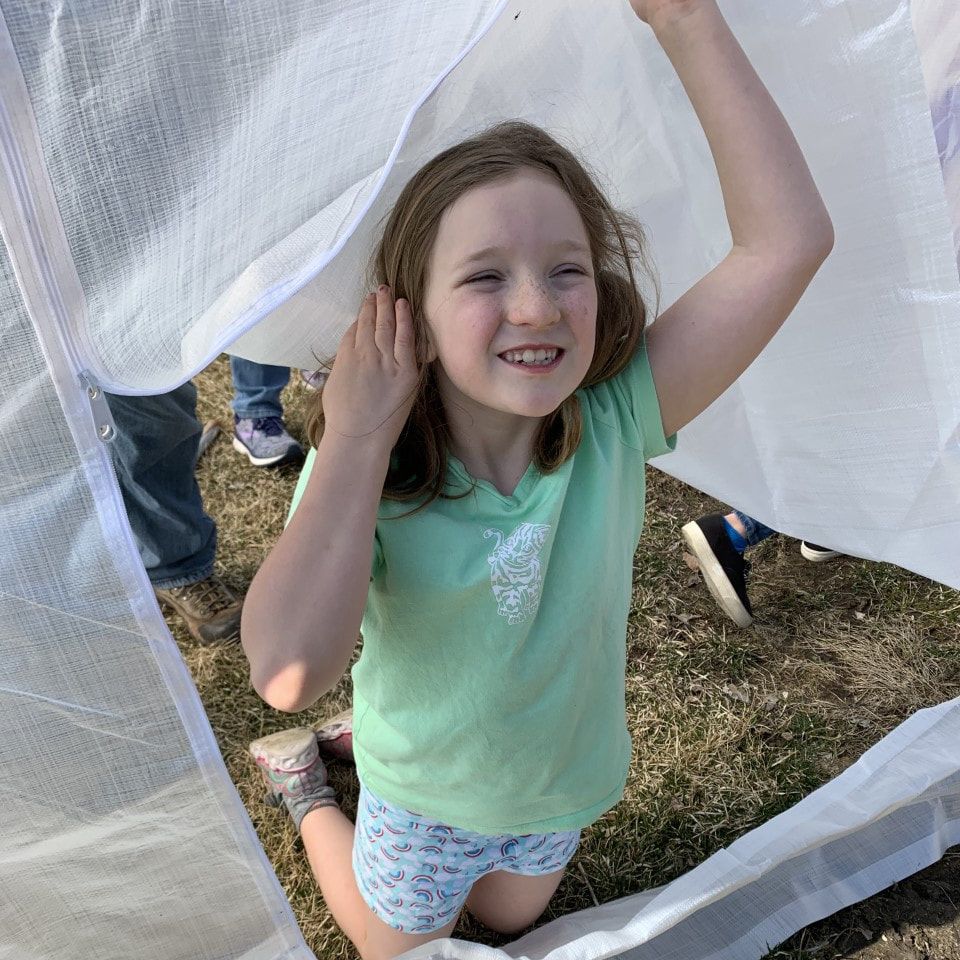
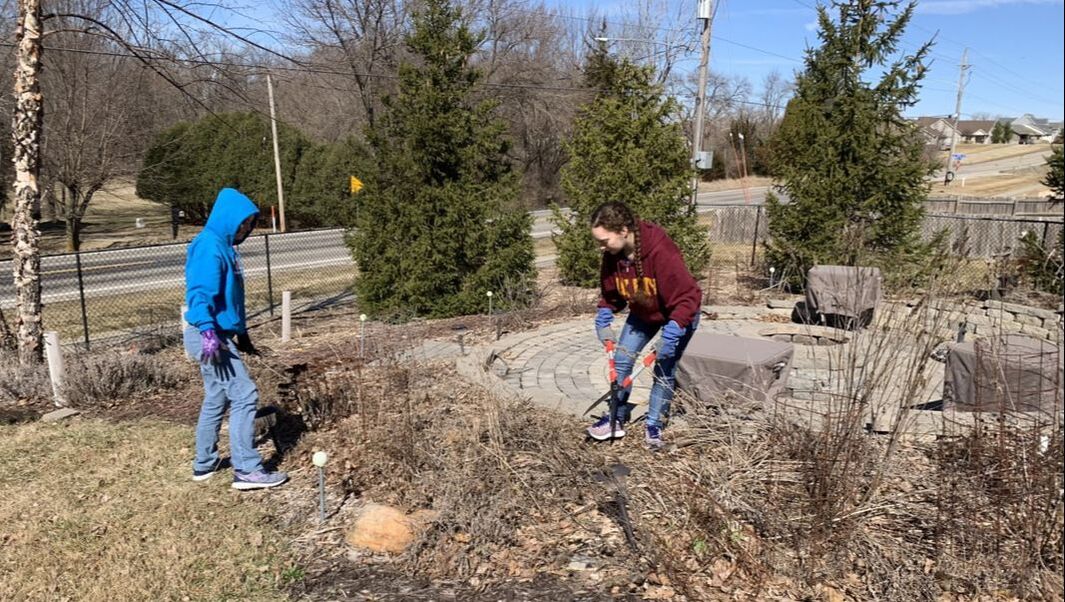
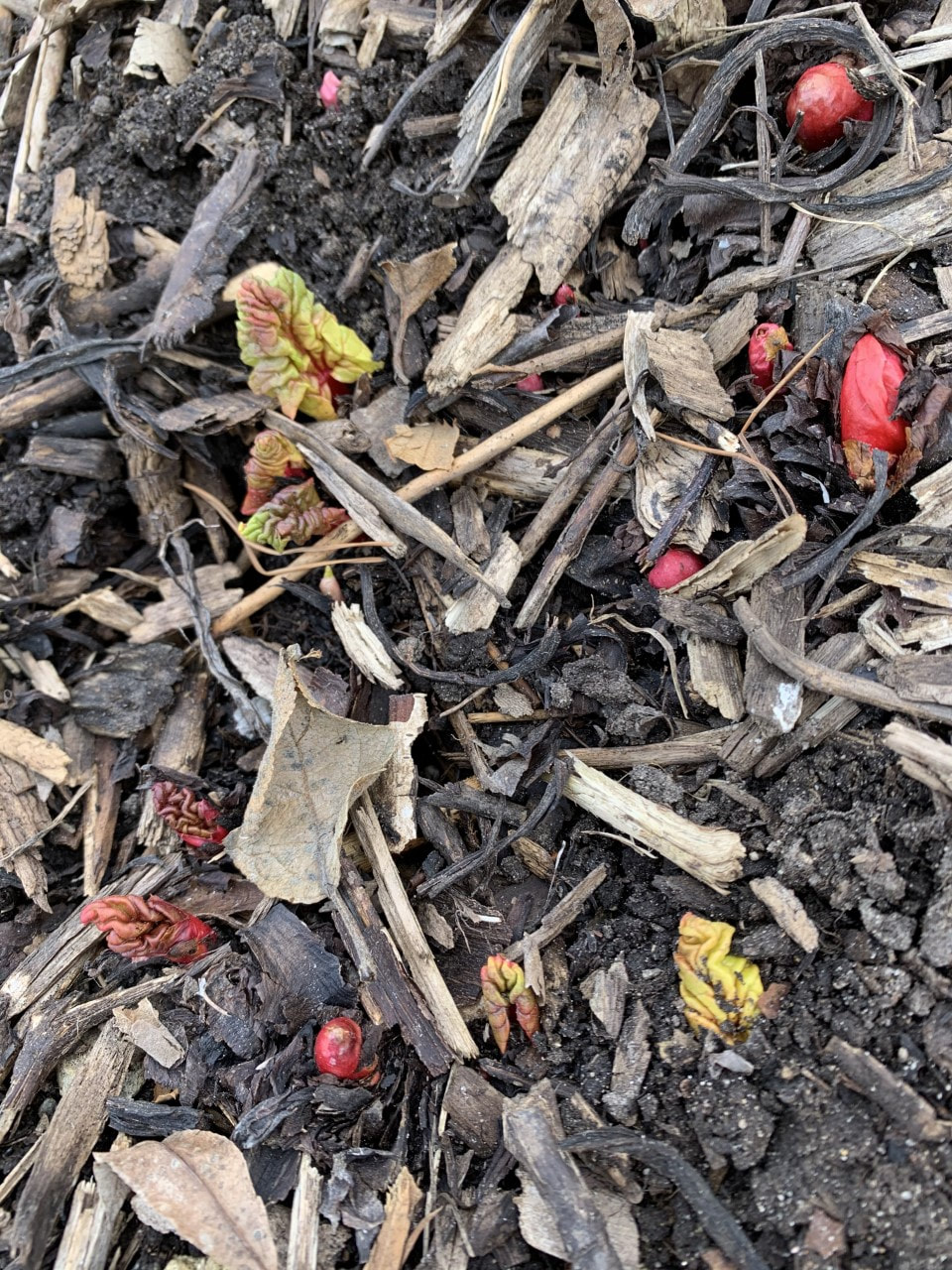
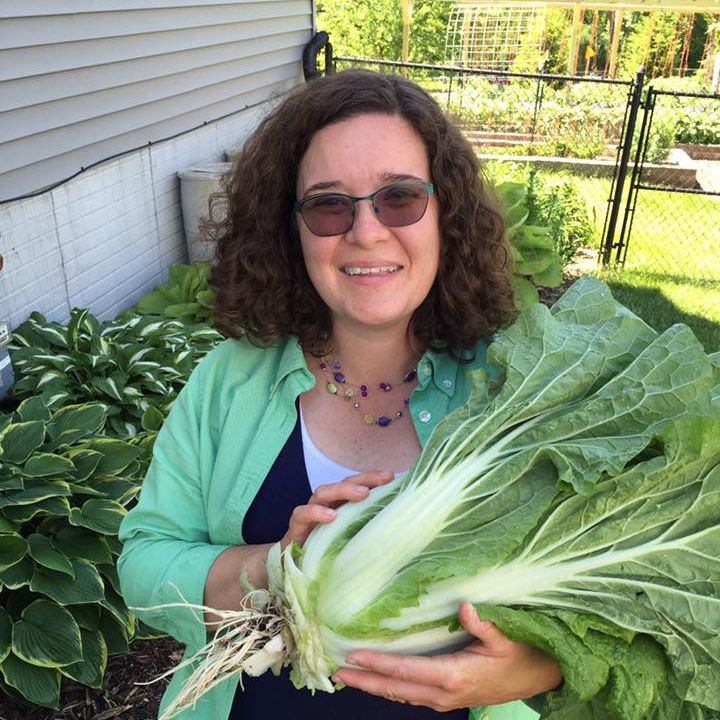
 RSS Feed
RSS Feed